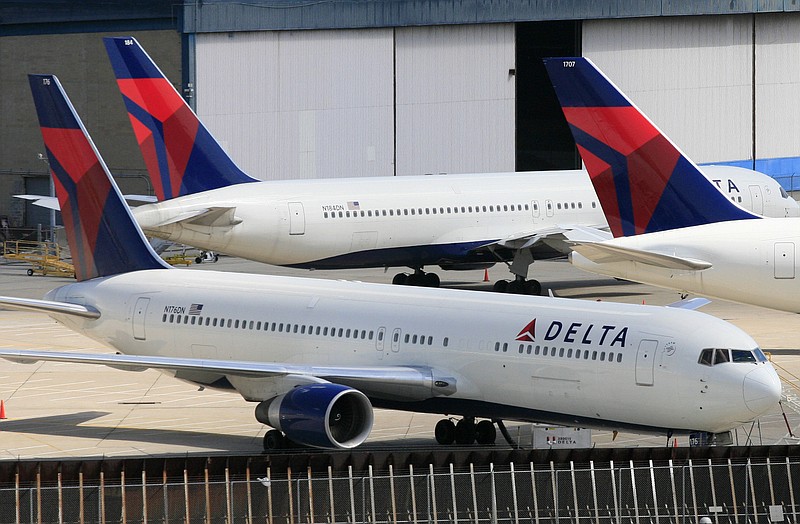WASHINGTON (AP) — U.S. Customs and Border Protection is clarifying airline passengers aren’t required to submit to identification checks when getting off planes if there’s no law enforcement-related reason.
The new policy directive comes as a result of a settlement in a lawsuit; the documents were obtained Thursday by the Associated Press.
The lawsuit was filed by passengers who had been on Delta Air Lines Flight 1583 from San Francisco to New York’s Kennedy Airport in February 2017, soon after President Donald Trump’s initial travel ban. They were told by the flight crew all the passengers would have to show identification to get off the airplane. They were greeted by two Customs officers when they landed and were forced to wait aboard the plane as each passenger was checked.
The officers were searching, at the request of Immigration and Customs Enforcement, for an immigrant with a deportation order after criminal convictions for domestic assault and other crimes. The person was not identified and was not aboard. The officers didn’t tell passengers the search was voluntary, said the American Civil Liberties Union, which represented the passengers in the lawsuit.
It’s not uncommon for law enforcement officers to board a plane to apprehend a criminal suspect: Former International Monetary Fund leader Dominique Strauss-Kahn was pulled from a flight out of Kennedy in 2011 to face sex assault charges that were later dropped. However, it’s highly unusual for authorities to wait outside an airplane and ask for ID from each passenger.
However, Customs officials initially characterized the searches as routine policy, but then argued before the court in an effort to dismiss the case that it was not a written policy.
Judge Nicholas Garaufis refused to throw out the lawsuit, saying: “Defendants cannot, now, have their cake and eat it too: They responded to various media inquiries by saying they were following a policy, and the court will take them at their word.”
The ID checks happened just a few weeks after Trump’s initial travel ban, which sparked mass confusion at airports around the country and had immigration lawyers camped out in places like Kennedy Airport to help stranded passengers.
Many of the passengers felt they had no choice but to submit to the search, even though they didn’t understand why they were being asked for their identification. A new policy directive being issued by Customs officials should make clear that’s not the case.
“One of the great things about this country is that we have protections, and when those protections are violated, we can speak up,” plaintiff Kelley Amadei said in a statement. “And sometimes, in cases like this, we get the result we need to protect us and our fellow citizens.”
Under the settlement, a directive will be given to Customs and Border Protection staff nationwide making clear they must comply with the Constitution’s Fourth Amendment, which protects against unreasonable search and seizure.
The notice will highlight the agency “does not have a policy or routine practice of compelling or requesting that passengers deplaning domestic flights submit to suspicionless document checks,” according to the language in the settlement agreement.
And when officers do conduct voluntary ID searches, the directive provides restrictions, including passengers must understand the searches are not required. Officers must also ask airline employees to communicate over the intercom that searches are voluntary. They can’t block passengers from deplaning and must make clear there will be no punishment for passengers who refuse to show ID.
Customs and Border Protection officials had no immediate comment Thursday. Attorneys with the Eastern District of New York, where the case was filed, had no comment.
The government also agreed to pay $40,000 in legal fees. Both parties notified the judge of the settlement, which will be finalized after the directive goes out.

